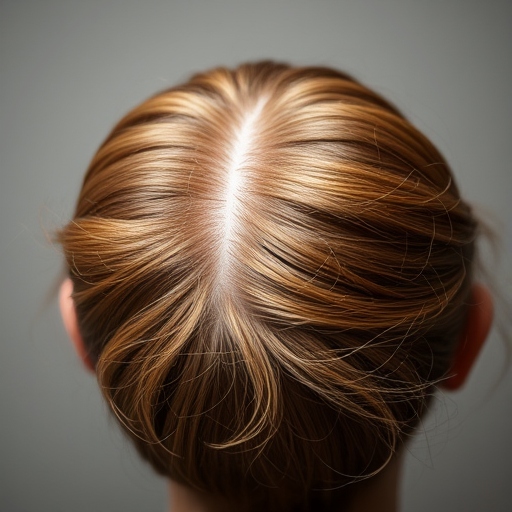Hair is not just a part of our appearance; it’s also intricately connected to our overall health, including hormonal balance. Many of us experience changes in hair thickness and growth at different stages of life, often due to fluctuations in hormones. Understanding this connection can shed light on why hormonal changes impact hair health and what we can do about it.
The Role of Hormones in Hair Growth
Hormones are pivotal in overseeing a multitude of bodily functions, among them the growth of hair.The two main hormones associated with hair growth are:
- Estrogen: Often referred to as the “female hormone,” estrogen promotes hair growth and contributes to thicker, healthier hair.
- Androgens: These are male hormones, such as testosterone, which can also be present in females in smaller amounts. Androgens can affect hair growth depending on their balance with other hormones.
Hormonal Changes and Hair Thinning
Throughout life, hormone levels fluctuate due to natural processes like puberty, pregnancy, and menopause, as well as medical conditions or treatments. These fluctuations can influence the hair growth cycle in various ways:
– Puberty: During puberty, increased levels of androgens can stimulate hair growth in new areas (e.g., facial hair in boys, pubic hair in both genders).
– Pregnancy: Many women experience thicker, fuller hair during pregnancy due to higher estrogen levels. However, postpartum hormonal changes can lead to temporary hair shedding.
– Menopause: Estrogen levels decline during menopause, leading to thinner hair and increased susceptibility to hair loss.
– Medical Conditions: Hormonal imbalances caused by conditions like polycystic ovary syndrome (PCOS) or thyroid disorders can disrupt the hair growth cycle and result in hair thinning.
Types of Hormonal Hair Loss
There are several types of hair loss linked to hormonal changes:
- Androgenetic Alopecia: Commonly known as male or female pattern baldness, this condition is influenced by genetic predisposition and hormonal factors, particularly androgens.
- Telogen Effluvium: A condition where stress or hormonal changes push more hair follicles into the resting (telogen) phase, resulting in increased shedding.
- Alopecia Areata: An autoimmune condition where the immune system attacks hair follicles, potentially triggered by hormonal changes.
Managing Hormonal Hair Thinning
While hormonal hair thinning can be distressing, several strategies can help manage and minimize its impact:
- Balanced Diet: Ensure you’re getting essential nutrients like vitamins A, C, D, and E, as well as minerals like zinc and iron, which support hair health.
- Stress Management: Practice relaxation techniques such as yoga or meditation to reduce stress levels, which can contribute to hormonal imbalances.
- Scalp Care: Use gentle shampoos and conditioners suitable for your hair type to maintain scalp health and promote hair growth.
- Medical Consultation: If you suspect hormonal imbalances are affecting your hair, consult a healthcare professional for appropriate diagnosis and treatment options, which may include hormone therapy or medications.
Embracing Change
Recognizing the connection between hormones and hair thinning empowers individuals to proactively care for their hair’s health.While some hair changes due to hormonal fluctuations are natural and temporary, others may require medical intervention. By prioritizing overall health and addressing hormonal imbalances, individuals can navigate changes in hair thickness with confidence and grace.
Conclusion
Hormones play a significant role in hair growth and thickness throughout life. By recognizing how hormonal changes can impact hair health, individuals can take steps to support their hair through balanced nutrition, stress management, and appropriate medical care. Embracing these changes as part of a natural life cycle allows us to appreciate our hair’s resilience and adaptability, reflecting our overall well-being. Remember, a healthy mindset and proactive approach to hair care can make a world of difference in maintaining beautiful, vibrant hair at every stage of life.
